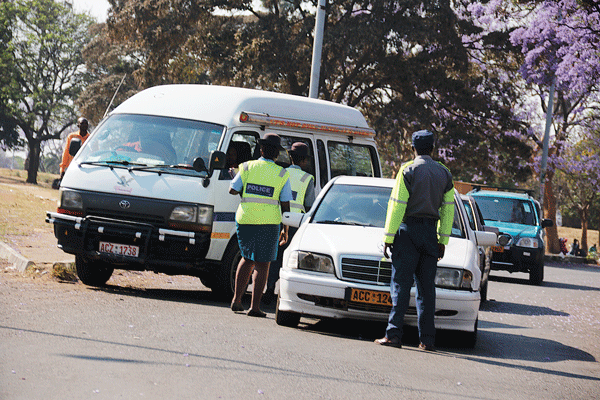
In last week’s instalment I argued in this column that the end or fall of Zanu PF is not going to be the beginning of freedom. I also argued that the 37 years Zanu PF has been in power have had serious implications on the mindset of some of our people and this will have far reaching implications in the way we forge our future in the post-Zanu PF era.
Develop me: Tapiwa Gomo

This mindset of subservience is an end product of many years of autocracy where the State has used several of its apparatus to subject the minds to a level where fear reigns supreme even where sources of fear do not exist. We may be bold to talk about what has gone wrong, who is responsible or what needs to be done, but taking the next step to effect change has been one of our most significant challenges. We all know where the problem is, but we fear addressing it. We have become a voluble nation.
We fear the people around us because they may be spying on us. We fear to express ourselves freely because someone might be listening to us. We fear to be the only one criticising the system. We think we need change and yet we are afraid of voting. We are fully aware that the system is corrupt and we say it every day, but we fear addressing it because we think our lives will be in trouble if we do so. We even fear the corrupt and corruption is now celebrated as a form of success. We fear the State and its apparatus.
We are just a fearful nation. Our level of fear marks the difference between change and remaining under autocracy. Our “No” easily changes to “Yes” in the presence of fear. We cede our victories and voices to fear. Remember the nation once gave Morgan Tsvangirai the votes needed to win an election, and fear took him to Botswana and it kept us quiet for a month and allowed autocracy to reign. The 37 years that the country has been run down by the current system have been largely characterised by nothing but fear. We are products of fear.
One of the factors that have perpetuated this fear to deeper levels is poverty. Impoverishing people disempowers them and forces them to trade their rights and freedoms for survival and subjugation. It destroys collective efforts by individualising interests. The mass stay-aways failed because people looked at their own scenarios not broader national interests. That which has been preserved by lack of participation in those stay-aways, has ultimately been destroyed by the system. The best way to have preserved what had remained of an economy was to stop the system and not fear it.
When the whole nation has been stripped and impoverished, autocracy thrived and reigned supreme. Today the system might be the most hated, but it has more power to decide and define the course than the people. We helped grow an autocratic system. The system is aware that poverty is both painful and coercive. The threat of destitution and hunger is no less real than that of a bullet. It reduces options and forces people to do things they would not otherwise do. The disempowered masses are compelled by the situation created by the system to focus on survival.
Instead of pursuing the struggle to free ourselves, we are forced to focus on survival. The large numbers of those in the diaspora characterise how fearful we are to face the system head-on. We seek refuge, instead of freedom. We allow autocracy to remain as we take flight due to fright. We dangle our hopes on nature as if nature is not neutral. Nature can deliver change but that future has to be shaped somehow and not from the sidelines.
- Chamisa under fire over US$120K donation
- Mavhunga puts DeMbare into Chibuku quarterfinals
- Pension funds bet on Cabora Bassa oilfields
- Councils defy govt fire tender directive
Keep Reading
That a nation can allow its roads to be littered by so many roadblocks in a country that does not experience war or terrorism is an example of how we have allowed the system to sit in our pockets and further impoverish us. The increasing presence of roadblocks and potholes and less road repairs tells an obscene story of our fearful situation. With every dollar we pay to free ourselves from those roadblocks, we are both disempowering ourselves and strengthening the system further. How we have come to this situation where we have become comfortable navigating our way out of perpetual situations than address them is huge concern.
It is now clear that it has been in the interest of the system to keep the large part of the nation poor and powerless. Power thrives when the people are compelled by circumstances to accept escape opportunities from their fearful situations in order to survive. Autocracy thrives on desperation. The more desperate people are the more they are likely to submit and the less they are likely to rise. Poverty restricts options, and those restrictions are enforced by the State through coercive interference. The less money an individual has, the more she or he will be subjected to fear.
Fear is supposed to be a source of inspiration for struggle for liberation.
Tapiwa Gomo is a development consultant based in Pretoria, South Africa











